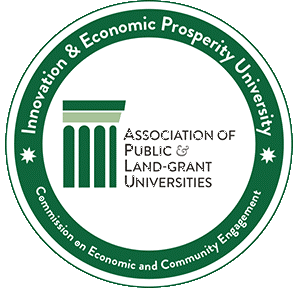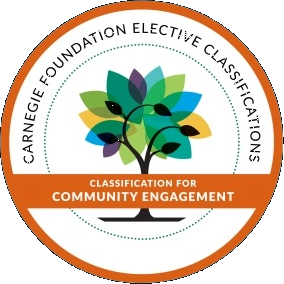Attention: Faculty, Academic Staff, Grant Support Staff, and Graduate Students
May 9 - May 10, 2018
Kellogg Center
8:30 a.m. check-in, light breakfast, and networking
9:00 a.m. - 4:00 p.m. (Wednesday) and 9:00 a.m. - 12:00 p.m. (Thursday) workshop
Proposals submitted to the National Science Foundation are evaluated on both intellectual merit and broader impacts (BI)—how the proposed research will benefit society and contribute to the achievement of specific, desired societal outcomes. Broader impacts activities show the relevance of the research to the public—and increasingly determine which of multiple excellent proposals get funded.
This two-day workshop (full day on day 1 and half day on day 2) will be facilitated by consultants from the NSF-funded National Alliance for Broader Impacts (NABI).
Sessions will cover:
- BI fundamentals and plan development for investigators and grant support staff
- BI in the NSF process, with Dr. Suzi Iacono, Head of NSF’s Office of Integrative Activities
- Find Your BI Partner lunch
- Building BI into your career plan
- BI evaluation with Dr. Lori Wingate of The Evaluation Center at Western Michigan University
- Broader participation from underrepresented groups
Leave these sessions with ideas, resources, pathways to partners, and a more fully developed BI plan for your proposal.
Speaker Bios
Ann E. Austin
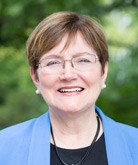 Ann E. Austin is professor of higher, adult, and lifelong education at Michigan State University, where she also serves as associate dean for research in the College of Education and assistant provost for faculty development—academic career paths. Her research concerns academic work and professional development, organizational change, doctoral education, and teaching and learning in higher education. She was a US Fulbright Fellow in South Africa (1998), served as president of the Association for the Study of Higher Education (2001-2002), is a Fellow of the American Educational Research Association (AERA), and worked as a program officer at the US National Science Foundation (NSF). She currently is PI of a project supported by NSF to study organizational networks focused on improving undergraduate STEM education, and PI of an NSF-funded project concerning reform in teaching evaluation. Earlier NSF-funded work concerned organizational change strategies to support the success of women scholars in STEM fields. She has served for more than a decade as the co-PI and co-leader of the Center for the Integration of Research, Teaching, and Learning (CIRTL), a network of 40 universities funded by the NSF to prepare the next generation of faculty as excellent teachers. She has been involved in research and consulting in more than a dozen countries.
Ann E. Austin is professor of higher, adult, and lifelong education at Michigan State University, where she also serves as associate dean for research in the College of Education and assistant provost for faculty development—academic career paths. Her research concerns academic work and professional development, organizational change, doctoral education, and teaching and learning in higher education. She was a US Fulbright Fellow in South Africa (1998), served as president of the Association for the Study of Higher Education (2001-2002), is a Fellow of the American Educational Research Association (AERA), and worked as a program officer at the US National Science Foundation (NSF). She currently is PI of a project supported by NSF to study organizational networks focused on improving undergraduate STEM education, and PI of an NSF-funded project concerning reform in teaching evaluation. Earlier NSF-funded work concerned organizational change strategies to support the success of women scholars in STEM fields. She has served for more than a decade as the co-PI and co-leader of the Center for the Integration of Research, Teaching, and Learning (CIRTL), a network of 40 universities funded by the NSF to prepare the next generation of faculty as excellent teachers. She has been involved in research and consulting in more than a dozen countries.
C. Suzanne Iacono
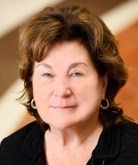 Suzi Iacono is the head of the Office of Integrative Activities (OIA) at the National Science Foundation (NSF). Since she joined NSF in 1998, she has served in many leadership roles, including acting assistant director in the Directorate for Computer and Information Science and Engineering (CISE), deputy assistant director for CISE, senior science advisor, acting division director in Computer and Network Systems (CNS) and Information and Intelligent Systems (IIS), and program director in IIS. Prior to coming to NSF, she held a faculty position at Boston University School of Management, was a visiting scholar at the Sloan School, Massachusetts Institute of Technology, and was a research associate at the Public Policy Research Office at the University of California, Irvine. Over the years, she has written journal articles, book chapters, and conference papers on social informatics, an area of interdisciplinary research and education that integrates aspects of computer and social sciences. Iacono received her PhD from the University of Arizona in information systems and her MA and BA from the University of California, Irvine, in social ecology.
Suzi Iacono is the head of the Office of Integrative Activities (OIA) at the National Science Foundation (NSF). Since she joined NSF in 1998, she has served in many leadership roles, including acting assistant director in the Directorate for Computer and Information Science and Engineering (CISE), deputy assistant director for CISE, senior science advisor, acting division director in Computer and Network Systems (CNS) and Information and Intelligent Systems (IIS), and program director in IIS. Prior to coming to NSF, she held a faculty position at Boston University School of Management, was a visiting scholar at the Sloan School, Massachusetts Institute of Technology, and was a research associate at the Public Policy Research Office at the University of California, Irvine. Over the years, she has written journal articles, book chapters, and conference papers on social informatics, an area of interdisciplinary research and education that integrates aspects of computer and social sciences. Iacono received her PhD from the University of Arizona in information systems and her MA and BA from the University of California, Irvine, in social ecology.
Janice McDonnell
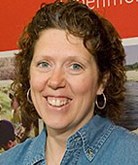 Janice McDonnell is the science agent in the Department of Youth Development at Rutgers University, where she focuses on developing and implementing high quality STEM programs for young people. McDonnell’s background is in marine sciences; she has been a marine science educator in the Department of Marine and Coastal Sciences for more than twenty years. McDonnell has had many unique opportunities, including conducting ocean research in a submersible called the Johnson Sea Link two miles down into the ocean depths. For ten years, she was the lead investigator for the National Science Foundation’s Centers for Ocean Science Education Excellence Networked Ocean World (COSEE-NOW), where the goal was to help scientists and educators work together to better communicate with others about the ocean. She is one of the co-authors of the Broader Impacts Wizard, developed as part of COSEE-NOW. She also supports approximately a dozen researchers annually in developing broader impact statements for their NSF proposals.
Janice McDonnell is the science agent in the Department of Youth Development at Rutgers University, where she focuses on developing and implementing high quality STEM programs for young people. McDonnell’s background is in marine sciences; she has been a marine science educator in the Department of Marine and Coastal Sciences for more than twenty years. McDonnell has had many unique opportunities, including conducting ocean research in a submersible called the Johnson Sea Link two miles down into the ocean depths. For ten years, she was the lead investigator for the National Science Foundation’s Centers for Ocean Science Education Excellence Networked Ocean World (COSEE-NOW), where the goal was to help scientists and educators work together to better communicate with others about the ocean. She is one of the co-authors of the Broader Impacts Wizard, developed as part of COSEE-NOW. She also supports approximately a dozen researchers annually in developing broader impact statements for their NSF proposals.
Beronda Montgomery
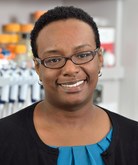 Beronda Montgomery, PhD, is MSU Foundation Professor of Biochemistry & Molecular Biology and Microbiology & Molecular Genetics in the Department of Energy (DOE) Plant Research Laboratory and Assistant Provost for Faculty Development – Research at Michigan State University (MSU). She completed doctoral studies in plant biology at the University of California, Davis, and was a National Science Foundation (NSF) funded postdoctoral fellow in microbial biology at Indiana University. The Montgomery lab pursues a common research theme of understanding how individuals perceive, respond to, and are impacted by the environments in which they exist. Primary research efforts of the Montgomery group are focused on the responses of photosynthetic organisms, including cyanobacteria and plants, to external light cues. Additionally, Montgomery pursues this theme in the context of effective mentoring in research environments and leadership in academia. Dr. Montgomery’s scholarly efforts have been recognized by receipt of an NSF CAREER Award in 2007, selection as a finalist in the 2014 Howard Hughes Medical Institute (HHMI) Professors Competition, nomination for a 2015 Michigan State University Council for Advancement and Support of Education (CASE) U.S. Professor of the Year Award, and selection as a 2017-2019 American Society of Microbiology Distinguished Lecturer. Dr. Montgomery was recently elected in 2018 as a member of the American Academy of Microbiology.
Beronda Montgomery, PhD, is MSU Foundation Professor of Biochemistry & Molecular Biology and Microbiology & Molecular Genetics in the Department of Energy (DOE) Plant Research Laboratory and Assistant Provost for Faculty Development – Research at Michigan State University (MSU). She completed doctoral studies in plant biology at the University of California, Davis, and was a National Science Foundation (NSF) funded postdoctoral fellow in microbial biology at Indiana University. The Montgomery lab pursues a common research theme of understanding how individuals perceive, respond to, and are impacted by the environments in which they exist. Primary research efforts of the Montgomery group are focused on the responses of photosynthetic organisms, including cyanobacteria and plants, to external light cues. Additionally, Montgomery pursues this theme in the context of effective mentoring in research environments and leadership in academia. Dr. Montgomery’s scholarly efforts have been recognized by receipt of an NSF CAREER Award in 2007, selection as a finalist in the 2014 Howard Hughes Medical Institute (HHMI) Professors Competition, nomination for a 2015 Michigan State University Council for Advancement and Support of Education (CASE) U.S. Professor of the Year Award, and selection as a 2017-2019 American Society of Microbiology Distinguished Lecturer. Dr. Montgomery was recently elected in 2018 as a member of the American Academy of Microbiology.
Xiaobo Tan
 Dr. Xiaobo Tan is an MSU Foundation Professor in the Department of Electrical and Computer Engineering and the Department of Mechanical Engineering (by courtesy) at Michigan State University (MSU). He received his bachelor’s and master’s degrees in automatic control from Tsinghua University, China, in 1995 and 1998, respectively, and his PhD degree in electrical and computer engineering from the University of Maryland, College Park, in 2002. His research interests include bio-inspired underwater robots and their application to environmental sensing, electroactive polymer sensors and actuators, modeling and control of systems with hysteresis, and soft robotics. He has published over 200 journal and conference papers and holds three US patents on these topics.
Dr. Xiaobo Tan is an MSU Foundation Professor in the Department of Electrical and Computer Engineering and the Department of Mechanical Engineering (by courtesy) at Michigan State University (MSU). He received his bachelor’s and master’s degrees in automatic control from Tsinghua University, China, in 1995 and 1998, respectively, and his PhD degree in electrical and computer engineering from the University of Maryland, College Park, in 2002. His research interests include bio-inspired underwater robots and their application to environmental sensing, electroactive polymer sensors and actuators, modeling and control of systems with hysteresis, and soft robotics. He has published over 200 journal and conference papers and holds three US patents on these topics.
Dr. Tan has served on the editorial boards of Automatica, IEEE/ASME Transactions on Mechatronics, and the International Journal of Advanced Robotic Systems. He has also been a guest editor for special issues or focused sections for six journals. Dr. Tan is keen to integrate his research with educational and outreach activities, and has served as director of an NSF-funded Research Experiences for Teachers (RET) Site program at MSU from 2009 – 2016 and curator of a robotic fish exhibit at MSU Museum in 2016-2017. Dr. Tan is a Fellow of IEEE and a recipient of the NSF CAREER Award (2006), MSU Teacher-Scholar Award (2010), Withrow Distinguished Scholar Award from MSU College of Engineering (2018), Distinguished Alumni Award from the Department of Electrical and Computer Engineering at University of Maryland (2018), and four Best Paper Awards.
Laurie Van Egeren
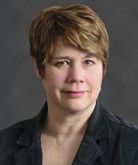 Laurie Van Egeren, PhD, is the assistant provost for university-community partnerships in Michigan State University’s Office of University Outreach and Engagement. She conducts engaged research funded by NSF, NIH, and foundations, including state evaluations of after-school programs and child care consultation programs; early childhood science education; youth-driven spaces; parent-training programs for children diagnosed with autism; and programs to increase STEM college entry among African-American students. Van Egeren is on the Steering Committee for the National Alliance for Broader Impacts, the MSU representative for the Engaged Scholarship Consortium, and a member of the APLU Council on Engagement and Outreach. She has an MA in child/family clinical psychology and a PhD in developmental psychology from MSU.
Laurie Van Egeren, PhD, is the assistant provost for university-community partnerships in Michigan State University’s Office of University Outreach and Engagement. She conducts engaged research funded by NSF, NIH, and foundations, including state evaluations of after-school programs and child care consultation programs; early childhood science education; youth-driven spaces; parent-training programs for children diagnosed with autism; and programs to increase STEM college entry among African-American students. Van Egeren is on the Steering Committee for the National Alliance for Broader Impacts, the MSU representative for the Engaged Scholarship Consortium, and a member of the APLU Council on Engagement and Outreach. She has an MA in child/family clinical psychology and a PhD in developmental psychology from MSU.
Rick Wash
 Rick Wash is associate professor in the Department of Media and Information at Michigan State University. His work involves understanding how people think about their interactions with computers, and their interactions with other people through computers, with a particular focus on cyber-security and collaborative systems. His research is supported by multiple grants from the US National Science Foundation, including an NSF CAREER award. He completed his PhD in the School of Information at the University of Michigan.
Rick Wash is associate professor in the Department of Media and Information at Michigan State University. His work involves understanding how people think about their interactions with computers, and their interactions with other people through computers, with a particular focus on cyber-security and collaborative systems. His research is supported by multiple grants from the US National Science Foundation, including an NSF CAREER award. He completed his PhD in the School of Information at the University of Michigan.
Jory Weintraub
 Jory Weintraub is director of the Duke University Broader Impacts Resource Center, which provides broader impacts support and consultation for the Duke research community. He also serves on the Steering Committee of the National Alliance for Broader Impacts (NABI). Additionally, he is the science communication director and a Senior Lecturing Fellow with the Duke Initiative for Science and Society, through which he teaches undergrad and graduate courses in science communication and runs sci-comm workshops for Duke faculty and postdocs. He has a BS in biochemistry from the University of California at San Diego and a PhD in immunology from the University of North Carolina at Chapel Hill, and received an NSF postdoctoral fellowship in STEM education. His work focuses on broader impacts, minority outreach, science communication/education/outreach, and faculty development.
Jory Weintraub is director of the Duke University Broader Impacts Resource Center, which provides broader impacts support and consultation for the Duke research community. He also serves on the Steering Committee of the National Alliance for Broader Impacts (NABI). Additionally, he is the science communication director and a Senior Lecturing Fellow with the Duke Initiative for Science and Society, through which he teaches undergrad and graduate courses in science communication and runs sci-comm workshops for Duke faculty and postdocs. He has a BS in biochemistry from the University of California at San Diego and a PhD in immunology from the University of North Carolina at Chapel Hill, and received an NSF postdoctoral fellowship in STEM education. His work focuses on broader impacts, minority outreach, science communication/education/outreach, and faculty development.
Lori Wingate
 Lori Wingate is the director of research at the Evaluation Center at Western Michigan University. She has a PhD in interdisciplinary evaluation from WMU and 25 years of experience in the field of program evaluation. She directs EvaluATE, the evaluation support center for the National Science Foundation’s Advanced Technological Education program, and has led a range of evaluation projects in the areas of STEM education, public health, and higher education. Since 2011, she has served as a subject matter expert in evaluation to the US Centers for Disease Control and Prevention. Wingate has led more than 50 webinars and workshops on evaluation in a variety of contexts and is an associate member of the graduate faculty at WMU.
Lori Wingate is the director of research at the Evaluation Center at Western Michigan University. She has a PhD in interdisciplinary evaluation from WMU and 25 years of experience in the field of program evaluation. She directs EvaluATE, the evaluation support center for the National Science Foundation’s Advanced Technological Education program, and has led a range of evaluation projects in the areas of STEM education, public health, and higher education. Since 2011, she has served as a subject matter expert in evaluation to the US Centers for Disease Control and Prevention. Wingate has led more than 50 webinars and workshops on evaluation in a variety of contexts and is an associate member of the graduate faculty at WMU.
Sponsors
University Outreach and Engagement, Office of Undergraduate Education, Office of the Vice President for Research and Graduate Studies, The Graduate School, Academic Advancement Network, Science + Society @ State (S3), College of Agriculture and Natural Resources, MSU Extension, AgBioResearch, MSU Center for Interdisciplinarity, College of Education, College of Social Science, College of Natural Science, College of Communication Arts and Sciences, Communications and Brand Strategy








